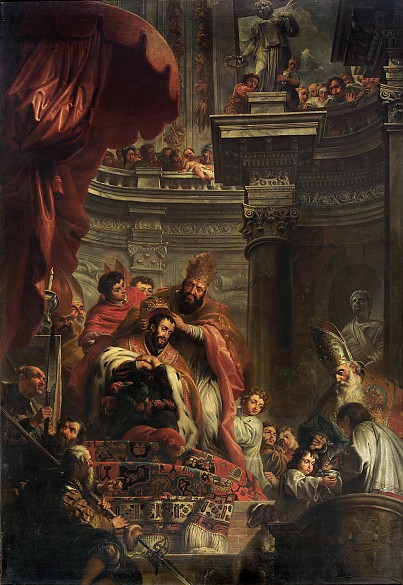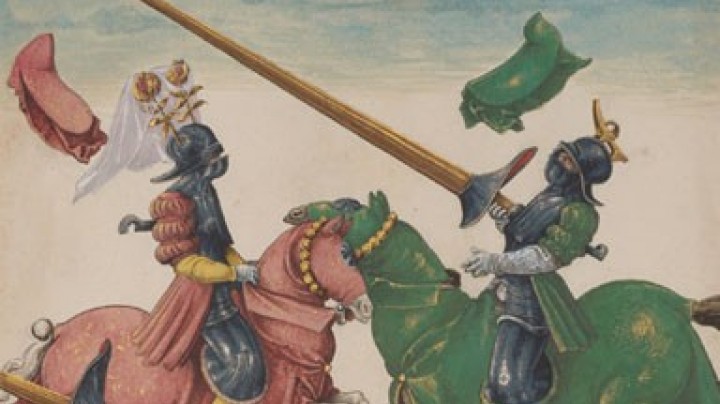Charles V and the dream of a universal monarchy
The enormous increase in his power soon led Charles to develop the idea of a global monarchy. The title of Holy Roman Emperor was to serve as the ideological basis for his claim on hegemony in Europe.
Charles’s rivals for the imperial succession to Maximilian were Francis I of France and Henry VIII of England. In June 1519 the electors voted at Frankfurt for Charles as king, the prerequisite step to attaining the imperial title. Nevertheless, Charles’s lofty ambitions were confronted with a thoroughly mundane problem: lack of money. The electors expected to be rewarded for their votes. Charles’s election campaign was mainly funded by the Fugger merchant family, subsequently making the emperor financially dependent upon them. Charles V was also the last emperor to be crowned by a pope, his coronation being performed by Clement VII at Bologna.
Charles’s claim to the leading role in the concert of powers was not uncontested: France became the ‘hereditary enemy’ for the next two centuries. A powerful adversary arose to the east in the shape of the Ottoman Empire. In a late continuation of the Spanish Reconquista against the Moors, Charles pursued campaigns in North Africa, leaving his brother Ferdinand to resist the inexorable expansion of the Turks in the Balkan territories.
Although Charles saw himself as a defender of Christianity, it was during his reign that the unity of the Roman Catholic Church finally collapsed due to his underestimating the power of the Reformation within the empire. This was not solely a question of theology but a political trial of strength between the emperor and the princes of empire who were insisting on their privileges and independence. Charles’s claim to universal rule is also evident in his attempts to solve the confessional conflict. The emperor wanted to effect a radical reform of the Church and saw himself as an impartial arbiter seeking to preserve the unity of Christendom.
It was with this intention that Charles persuaded the Pope to convene the Council of Trent. Conceived by Charles as an attempt to preserve the unity of the Catholic Church, its reforms led to the emergence of the Counter-Reformation and to an entrenching of positions, contrary to Charles’s intentions. He thus signally failed in what he had set out to achieve: religious schism had become reality.
Charles’s attempts to buttress imperial authority within the Holy Roman Empire and to privilege the monarchical element over the principle of an Estates-based, federal approach to government led to a conflict which initially ended in Charles’s favour with his victory in the Schmalkaldic War of 1547. Charles forced the ‘Augsburg Interim’ on the Protestant princes of the Empire, an agreement that was intended to implement a compromise until the theological disputes were resolved. This led to fundamental opposition from the Protestant Estates. The Peace of Augsburg in 1555 managed to steer a middle course between the emperor, as represented by his more pragmatic brother Ferdinand, and the Empire. Nonetheless, the limits of imperial power had been demonstrated, and it became clear that Charles’s policies within the Empire had failed. He had been unable to assert his ideal of strong imperial rule against the princes of the Empire. This remained the declared aim of the following generations of Habsburgs, who were to fail just as he had done before them.













